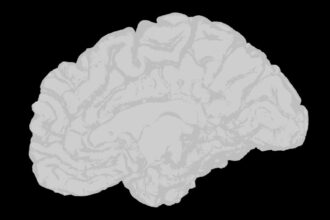Depersonalization and derealization are psychological phenomena that can leave you feeling detached from your own thoughts, feelings, or sense of self. When you experience depersonalization, you may feel as though you are an outside observer of your own life, as if you are watching yourself in a movie. This can lead to a profound sense of disconnection from your body and identity.
On the other hand, derealization involves a sense of detachment from your surroundings. You might perceive the world around you as unreal or distorted, as if you are living in a dream or a fog. Both experiences can be disorienting and frightening, often leading to confusion about what is real and what is not.
These episodes can occur in isolation or as part of a broader mental health condition. They can be triggered by stress, trauma, or anxiety, and may last for varying lengths of time. While many people may experience fleeting moments of depersonalization or derealization during particularly stressful times, for some, these episodes can become chronic and significantly impact their daily lives.
Understanding these phenomena is crucial for recognizing their effects and seeking appropriate help.
Key Takeaways
- Depersonalization and derealization episodes are characterized by feeling detached from oneself or the surrounding environment, often described as feeling like an outside observer of one’s own thoughts, feelings, and actions.
- Symptoms of depersonalization include feeling like a robot or an automaton, feeling emotionally numb, and experiencing distorted perceptions of time and space, while symptoms of derealization include feeling like the world is artificial or dreamlike, and experiencing a sense of unreality or detachment from the environment.
- Causes of depersonalization and derealization episodes can be linked to trauma, stress, anxiety, depression, substance abuse, and certain mental health conditions.
- Depersonalization and derealization episodes are more common than many people realize, with research suggesting that up to 50% of the population may experience at least one episode in their lifetime.
- Depersonalization and derealization can have a significant impact on daily life, affecting relationships, work, and overall well-being, and may lead to feelings of isolation and distress.
Symptoms of Depersonalization and Derealization
The symptoms of depersonalization and derealization can manifest in various ways, making it essential for you to recognize them. In depersonalization, you might experience feelings of unreality regarding your thoughts or body. You may feel as though you are observing yourself from outside your body or that your thoughts are not your own.
This can lead to a sense of emotional numbness or a lack of connection to your feelings. You might also find it challenging to engage with your surroundings or feel as if you are living in a dream. Derealization symptoms often include a distorted perception of the environment.
You may notice that familiar places seem strange or unfamiliar, or that people appear to be robotic or lacking in depth. Sounds may seem muted or distorted, and colors may appear less vibrant. These experiences can be unsettling and may lead to increased anxiety or panic, as you struggle to reconcile your perceptions with reality.
Recognizing these symptoms is the first step toward understanding what you are experiencing and seeking help.
Causes of Depersonalization and Derealization

The causes of depersonalization and derealization are complex and multifaceted. Often, these episodes are linked to extreme stress or trauma. For instance, if you have experienced a significant life event such as the loss of a loved one, an accident, or abuse, your mind may resort to these dissociative mechanisms as a coping strategy.
This detachment can serve as a protective barrier against overwhelming emotions, allowing you to distance yourself from painful experiences. Additionally, anxiety disorders, depression, and post-traumatic stress disorder (PTSD) can contribute to the onset of depersonalization and derealization episodes. When you are under constant stress or facing anxiety-inducing situations, your brain may trigger these dissociative states as a way to manage the emotional turmoil.
Substance abuse can also play a role; certain drugs can induce feelings of detachment or unreality, leading to episodes that may persist even after the substance has worn off.
How Common are Depersonalization and Derealization Episodes?
| Population | Prevalence |
|---|---|
| General Population | 1-2% |
| Clinical Population | Up to 50% |
Depersonalization and derealization episodes are more common than you might think. Research indicates that around 50% of individuals will experience at least one episode of depersonalization or derealization in their lifetime. However, for some people, these experiences can become chronic and significantly impact their quality of life.
The prevalence is particularly high among those who have experienced trauma or suffer from anxiety disorders. Interestingly, while many people may dismiss these feelings as temporary stress responses, they can be indicative of underlying mental health issues that require attention. The frequency and intensity of these episodes can vary widely among individuals; some may experience them sporadically, while others may find themselves grappling with persistent feelings of detachment.
Understanding how common these experiences are can help normalize them for those who suffer from them and encourage individuals to seek help when needed.
The Impact of Depersonalization and Derealization on Daily Life
Living with depersonalization and derealization can profoundly affect your daily life. You may find it challenging to engage in social situations or maintain relationships due to feelings of disconnection from yourself and others. This detachment can lead to isolation, as you might avoid situations that trigger your symptoms or feel unable to connect with friends and family on an emotional level.
Moreover, these episodes can interfere with your ability to perform daily tasks effectively. Concentration may become difficult when you feel detached from reality, making it hard to focus on work or school responsibilities. You might also struggle with decision-making, as the sense of unreality can cloud your judgment.
The cumulative effect of these challenges can lead to increased anxiety and frustration, creating a cycle that perpetuates the symptoms of depersonalization and derealization.
Diagnosing Depersonalization and Derealization

Diagnosing depersonalization and derealization typically involves a comprehensive evaluation by a mental health professional. During this process, the clinician will likely conduct interviews to gather information about your symptoms, medical history, and any potential triggers for your episodes. They may also use standardized assessment tools designed to measure dissociative symptoms.
It is essential for you to be open and honest during this evaluation process. Providing detailed information about your experiences will help the clinician make an accurate diagnosis. In some cases, depersonalization and derealization may occur alongside other mental health conditions such as anxiety disorders or PTSD, which will also need to be addressed in your treatment plan.
Treatment Options for Depersonalization and Derealization
Treatment for depersonalization and derealization often involves a combination of therapeutic approaches tailored to your specific needs. Cognitive-behavioral therapy (CBT) is one effective method that helps you identify negative thought patterns contributing to your symptoms. Through CBT, you can learn coping strategies to manage anxiety and reduce the frequency of episodes.
In some cases, medication may be prescribed to address underlying mental health conditions such as anxiety or depression that contribute to depersonalization and derealization. Antidepressants or anti-anxiety medications can help stabilize mood and reduce symptoms over time. It is crucial to work closely with your healthcare provider to determine the best course of treatment for your situation.
Coping Strategies for Managing Depersonalization and Derealization
In addition to professional treatment, there are several coping strategies you can employ to manage depersonalization and derealization episodes effectively. Mindfulness practices such as meditation or deep breathing exercises can help ground you in the present moment when feelings of detachment arise. By focusing on your breath or engaging in sensory experiences—like feeling the texture of an object—you can reconnect with reality.
Establishing a routine can also provide structure in your daily life, helping you feel more anchored during episodes of depersonalization or derealization. Engaging in physical activities such as exercise can release endorphins that improve mood and reduce anxiety levels. Additionally, journaling about your experiences may help you process your feelings and gain insight into potential triggers for your episodes.
The Link Between Depersonalization and Derealization and Mental Health Conditions
There is a significant link between depersonalization/derealization episodes and various mental health conditions. Many individuals who experience these phenomena also struggle with anxiety disorders, depression, or PTSD. The dissociative nature of depersonalization and derealization often serves as a coping mechanism for managing overwhelming emotions associated with these conditions.
Addressing underlying mental health issues through therapy or medication can significantly reduce the frequency and intensity of depersonalization and derealization episodes. By treating the root causes rather than just the symptoms, you can work toward achieving greater emotional stability.
Seeking Support for Depersonalization and Derealization
If you find yourself grappling with depersonalization or derealization episodes, seeking support is crucial for your well-being. Connecting with a mental health professional who understands these phenomena can provide you with valuable tools for managing your experiences effectively. Therapy offers a safe space for you to explore your feelings and develop coping strategies tailored to your unique situation.
Additionally, support groups can be beneficial for individuals experiencing similar challenges. Sharing your experiences with others who understand what you’re going through can foster a sense of community and reduce feelings of isolation.
Tips for Supporting a Loved One Experiencing Depersonalization and Derealization
If someone close to you is experiencing depersonalization or derealization episodes, offering support is essential in helping them navigate their challenges. First and foremost, listen without judgment when they share their experiences with you. Validate their feelings by acknowledging that what they are going through is real and significant.
Encourage them to seek professional help if they haven’t already done so; gently suggesting therapy or support groups can be beneficial without being pushy. Additionally, educate yourself about depersonalization and derealization so that you can better understand what they are experiencing. Finally, remind them that they are not alone in this journey; being there for them through their struggles can make all the difference in their recovery process.
In conclusion, understanding depersonalization and derealization is crucial for both those who experience these phenomena and their loved ones. By recognizing the symptoms, causes, impacts on daily life, treatment options available, coping strategies, links to mental health conditions, support systems available, and ways to assist loved ones experiencing these episodes, we can foster greater awareness and compassion surrounding these often-misunderstood experiences.
In exploring the complexities of depersonalization and derealization episodes, it’s essential to understand the underlying psychological mechanisms and therapeutic approaches that can aid individuals experiencing these dissociative phenomena. An insightful article that delves into these aspects can be found on Unplugged Psych, a platform dedicated to unraveling various psychological conditions and offering guidance. For a comprehensive understanding, you can read more about these episodes and their impact on mental health by visiting this related article. This resource provides valuable information on recognizing symptoms and seeking appropriate treatment, contributing to a broader awareness and support for those affected.
LEARN MORE About Unmasking the Mysteries Behind Depersonalization and Derealization
FAQs
What are depersonalization and derealization episodes?
Depersonalization and derealization episodes are experiences where individuals feel detached from themselves or their surroundings. Depersonalization involves feeling disconnected from one’s thoughts, feelings, or body, while derealization involves feeling that the external world is unreal or distorted.
What are the symptoms of depersonalization and derealization episodes?
Symptoms of depersonalization and derealization episodes may include feeling like an outside observer of one’s thoughts or actions, feeling like the world is distorted or unreal, emotional numbness, and a sense of detachment from one’s own body or emotions.
What causes depersonalization and derealization episodes?
Depersonalization and derealization episodes can be caused by various factors, including stress, trauma, anxiety, depression, substance abuse, and certain mental health conditions such as dissociative disorders.
How are depersonalization and derealization episodes diagnosed?
Depersonalization and derealization episodes are typically diagnosed through a thorough evaluation by a mental health professional, including a discussion of symptoms, medical history, and any potential underlying causes.
What are the treatment options for depersonalization and derealization episodes?
Treatment for depersonalization and derealization episodes may include therapy, such as cognitive-behavioral therapy (CBT) or dialectical behavior therapy (DBT), medication, stress management techniques, and addressing any underlying mental health conditions or trauma.
Can depersonalization and derealization episodes be prevented?
While it may not be possible to prevent depersonalization and derealization episodes entirely, managing stress, seeking treatment for underlying mental health conditions, and practicing self-care and relaxation techniques may help reduce the frequency and severity of episodes.




